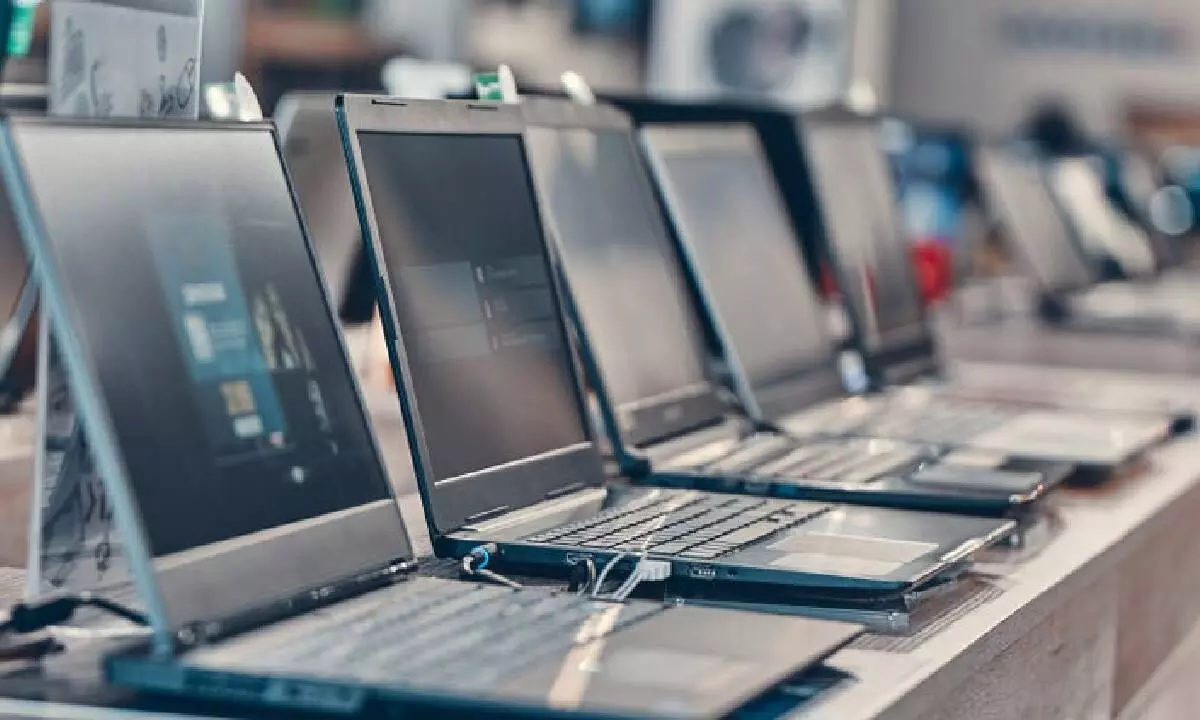Laptop Import License Policy Being Modified : Welcome Move
There seems to be good news on the horizon as far as the proposed new import licensing scheme for laptops and personal computers is concerned. There are reports it will be modified to allay industry’s concerns over possible delays in procuring devices essential for efficient operations. This is not just an issue facing the electronics or the information technology industry. All sectors of the economy need to use laptops, personal computers or tablets for their normal day-to-day operations. Prolonged delays in imports due to the new scheme can cause havoc in terms of efficiency and productivity.
image for illustrative purpose

There seems to be good news on the horizon as far as the proposed new import licensing scheme for laptops and personal computers is concerned. There are reports it will be modified to allay industry’s concerns over possible delays in procuring devices essential for efficient operations. This is not just an issue facing the electronics or the information technology industry. All sectors of the economy need to use laptops, personal computers or tablets for their normal day-to-day operations. Prolonged delays in imports due to the new scheme can cause havoc in terms of efficiency and productivity.
In this backdrop, reports that the scheme looks set to be modified by the time it is finally launched in November, are welcome.The plan to hark back to the license raj era in terms of import curbs had been opposed strongly by the electronics and IT sectors. The IT industry is especially critical right now as it accounts for a major chunk of the growing services exports over the past few years. Merchandise trade flows have become sluggish due to recessionary trends in major developed economies but services exports remain buoyant.
The decision to revive the moribund system of import licensing thus came a shock to the industry. Several industry associations called for a roll back of the policy to avoid the repercussions of reverting to regulatory systems that had been dispensed with in 1991.
In response to this outcry, the contours of the new policy are being made more industry-friendly, with the term “ import licensing” shifting to “import management”. Companies are now being advised to register on the web platform created by the Directorate General of Foreign Trade (DGFT) to share information about the numbers of computers being imported as well as, more importantly, from which sources.
It is an open secret that a key objective of the new policy is to cut imports from China, given the growing tensions between the two countries. It is possible that conditions may be imposed on importers to source products only from “trusted” regions which could exclude the northern neighbour. Till recently, as much as 70 per cent of laptop, tablet and computer imports were coming from China.
Another reason for the new import curbs has been the anxiety to promote domestic production of IT hardware since imports are rising rapidly. During the first quarter of the current fiscal – April to June – electronic goods import rose to 6.96 billion dollars compared to 4.73 billion dollars over the same period last year. The production-linked incentive (PLI) scheme for IT hardware has just been launched and the proposed import curbs are expected to provide another reason for companies to move towards manufacturing within the country.
The new policy had originally been announced on August 3 and was supposed to take effect immediately. The blowback from the industry forced the government to issue a clarification on the following day, advancing the implementation of the order to November.
Representatives of the domestic IT hardware industry who have been interacting with the government on this issue say one explanation given for resorting to the licensing route, is the need to operate within the rules down by the World Trade Organisation (WTO). Under its regulatory guidelines, it is not possible to block imports from any one country. To circumvent this problem, the government apparently decided to opt for licensing where the sourcing of imports can be identified before giving approvals.
Yet reverting to the system of licenses would mean that every application for import of these devices would have to be scrutinised by officials. In other words, a physical interface with officials would be required and this in turn would increase the potential for corruption in the system. The DGFT is clearly trying to allay such concerns of industry by demonstrating the operation of the new portal.
Even so, the entire concept of licenses recalls a system that was dismantled after the economic reforms of 1991. Plans to bring back a regulatory framework that inhibited economic growth and created a fertile ground for rent-seeking should certainly be given a rethink. As far as imports from China are concerned, the primary solution is to create an ecosystem within the country where domestic manufacturing of these devices is given an impetus.
Even for developing an indigenous IT hardware industry, it is not necessary to impose a licensing mechanism that will create hurdles for those seeking to import these devices on a regular basis. It is incentive schemes along with measures to provide ease in doing business that will provide the drive for growth in this sector. The government would be wise to refrain from reverting to systems that are now obsolete and out of synch with the current economic environment.

